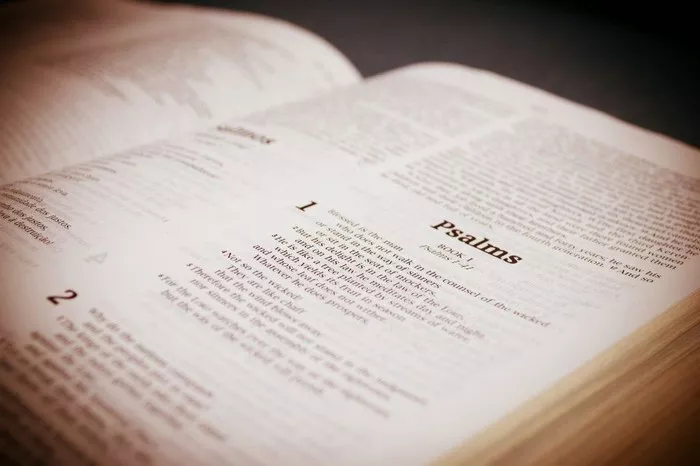Easter, the culmination of the Christian calendar, marks the resurrection of Jesus Christ from the dead. It is a time of profound spiritual significance for millions of believers worldwide. As such, devotion during Easter takes on a special meaning, guiding individuals through reflection, prayer, and celebration. In this article, we explore what constitutes a good devotion for Easter, examining its components, practices, and the profound impact it can have on one’s faith journey.
The Foundation of Easter Devotion: Faith and Reflection
At its core, Easter devotion centers on faith in the resurrection of Jesus Christ. This foundational belief is not just a historical event but a cornerstone of Christian faith, symbolizing hope, redemption, and eternal life. Devotional practices during Easter encourage believers to reflect deeply on the significance of this event, its theological implications, and personal relevance to their lives.
Scriptural Insights: The Role of Bible Study in Easter Devotion
Central to Easter devotion is the study of Scriptures related to the Passion, death, and resurrection of Jesus Christ. The Gospels provide a detailed account of these events, offering spiritual insights and lessons for believers. Engaging in Bible study during Easter allows individuals to delve into the narratives, understand the context, and draw parallels to their own faith journey. This practice fosters a deeper understanding of the Easter message and strengthens spiritual growth.
Prayer and Meditation: Deepening Spiritual Connection
Prayer is a fundamental aspect of Easter devotion, serving as a means of communication with God. It allows believers to express gratitude for the sacrificial love of Jesus Christ and seek guidance in their spiritual walk. During Easter, focused prayer and meditation on the themes of resurrection, forgiveness, and renewal enhance personal devotion. These practices cultivate a profound spiritual connection and provide solace amidst life’s challenges.
The Symbolism of Easter Traditions: Rituals and Practices
Easter traditions carry profound symbolism that enriches devotion. Practices such as attending church services, participating in Holy Communion, and observing the Stations of the Cross symbolically reenact the events leading to Christ’s resurrection. Each tradition underscores key aspects of faith, emphasizing themes of sacrifice, redemption, and the triumph of light over darkness. Engaging in these rituals fosters a sense of community among believers and reinforces shared beliefs.
Community and Fellowship: Celebrating Together
Easter is also a time for communal celebration and fellowship within the Christian community. Gathering with fellow believers for worship, prayer, and shared meals enhances the Easter experience. It fosters unity, mutual support, and the sharing of spiritual insights and personal testimonies. Community-based Easter devotions promote encouragement, accountability, and the strengthening of faith through collective worship and service.
Reflection on Personal Transformation: Applying Easter Teachings
Beyond communal aspects, Easter devotion encourages personal introspection and transformation. Reflecting on Christ’s resurrection inspires believers to examine their lives, repent from shortcomings, and embrace spiritual renewal. This introspective journey fosters growth in faith, character, and virtue, empowering individuals to live out the teachings of Easter in their daily lives. Applying these principles cultivates a Christ-centered lifestyle rooted in love, compassion, and service to others.
Easter Devotion in Practice: Daily Rituals and Observances
Practical engagement in Easter devotion involves integrating faith into daily rituals and observances. This includes morning and evening prayers focused on Easter themes, reading devotional literature that explores the resurrection narrative, and incorporating acts of kindness and charity inspired by Christ’s sacrificial love. By consistently practicing devotion, believers nurture a resilient faith that withstands challenges and deepens their spiritual connection with God.
The Impact of Easter Devotion: Spiritual Growth and Transformation
Easter devotion yields profound spiritual growth and transformation in the lives of believers. It instills hope, strengthens faith, and deepens understanding of God’s redemptive plan. Through dedicated prayer, study, and reflection, individuals experience a renewed sense of purpose, clarity of faith, and a heightened awareness of God’s presence in their lives. This transformative journey empowers believers to live authentically as disciples of Christ, impacting their families, communities, and beyond.
Challenges and Resilience: Navigating Trials Through Easter Devotion
Easter devotion equips believers to navigate life’s trials with resilience and faith. By drawing strength from the Easter message of victory over adversity, individuals find solace in God’s promises and persevere through hardships. Prayerful reflection on Christ’s suffering and triumph inspires courage, perseverance, and a steadfast trust in God’s providence. This resilience enables believers to face challenges with hope and confidence, knowing that their faith in the risen Christ sustains them through every season of life.
SEE ALSO: Bible Verses for Good Friday: A Biblical Exploration
Cultural and Global Perspectives: Diversity in Easter Devotion
Easter devotion transcends cultural and geographical boundaries, uniting believers worldwide in a shared faith experience. Cultural diversity enriches Easter observances through unique traditions, music, art, and expressions of worship. Global perspectives on Easter devotion highlight the universal relevance of Christ’s resurrection, inspiring solidarity among diverse Christian communities. Celebrating Easter across cultures fosters mutual respect, interfaith dialogue, and a deeper appreciation for the richness of Christian heritage.
Educational Resources and Tools: Enhancing Easter Devotion
Access to educational resources and tools enhances Easter devotion by providing in-depth study materials, devotional guides, and online resources. These resources facilitate structured Bible study, theological exploration, and personal reflection on Easter themes. Utilizing devotional apps, podcasts, and digital libraries expands access to spiritual insights and fosters continuous learning. Educational tools empower believers to deepen their understanding of Easter’s significance and apply its teachings to their daily lives.
Conclusion
In conclusion, Easter devotion encompasses a multifaceted journey of faith, reflection, and spiritual growth. Through scriptural study, prayer, communal fellowship, and personal transformation, believers engage deeply with the profound message of Christ’s resurrection. This transformative experience nurtures resilience, fosters unity within the Christian community, and inspires a life characterized by hope, love, and service. Embracing Easter devotion enriches faith journeys, strengthens spiritual foundations, and empowers believers to live purposefully as witnesses of God’s redeeming love.


